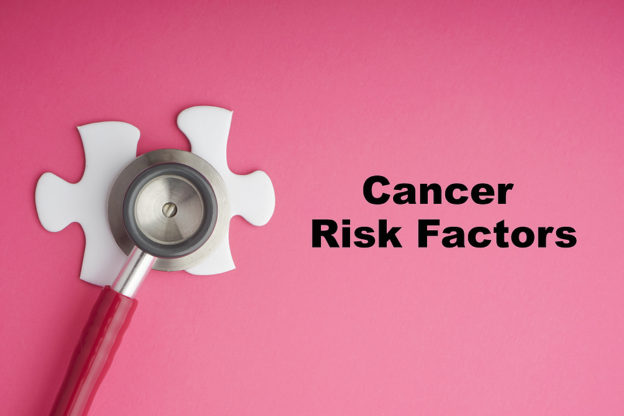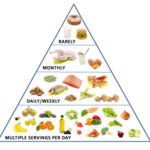By David Blyweiss, M.D., Advanced Natural Wellness
October 7, 2020
Sadly, there’s a good chance you or someone you love has been affected by the Big C… cancer.
I’ve helped many of my patients deal with their own diagnosis. Several of them were surprised to learn that simple lifestyle changes can make a big difference.
To illustrate this, I had one pancreatic cancer patient who was given six months to live. When he came to me, I helped him switch to a pure organic vegan lifestyle and recommended a special oxygen treatment. He has now lived more than twelve years past his diagnosis.
Another dear friend of mine had a 35-year-old daughter who was diagnosed with stage IV breast cancer. The disease had spread so far throughout her body that chemo and radiation weren’t even an option.
Again, she switched around her diet and lifestyle routine, added in high doses of vitamin C and tried oxygen therapy. Now, it’s been five years and the cancer has disappeared from her bones.
These are just two stories that demonstrate the incredible link between lifestyle and cancer. People who make positive changes after a cancer diagnosis often feel better, have less fatigue, and may even reduce the risk of cancer recurrence.[1]
For instance, at least 70% of colon cancers could be preventable with moderate changes to diet and lifestyle.[2]
But, on the flip side, poor lifestyle choices can be a risk factor for developing cancer in the future.
These Lifestyle Choices May Be Killing You
Now, to be fair, genetics certainly play a role on whether or not you fall victim to a type of cancer. For instance, if breast cancer runs in your family, you should take extra care to get screening for early detection. The same thing goes for colon cancer.
Open your arteries, improve blood flow for a new health miracle...
Did you know your circulatory system has over 60,000 miles of arteries, veins and other blood vessels, if stretched end to end?
But as you age, your blood vessels undergo changes, which may cause them to stiffen, thicken and get clogged.
GOOD NEWS! Doctors have now identified a “Miracle Molecule” inside your arteries that helps OPEN your arteries and IMPROVE blood flow.
It’s what Dr. Valentin Fuster calls it, "One of the most important discoveries in the history of cardiovascular medicine."To you, that means...
- Healthy blood pressure
- Sharper mind and memory
- Skyrocketing energy and muscular strength
- Increased pleasure and passion in the bedroom
- Improved circulation to every cell and organ in your body
Go here to discover a new natural way to significantly boost the levels of this miracle molecule in YOUR body NOW!
But other lifestyle factors are also increasing your risk. Here are several of the biggest lifestyle choices that may be killing you:
Weight gain and obesity: That extra padding around your belly may be a bigger problem than you think. If you are overweight or begin to gain weight after a cancer diagnosis, it is going to raise your risk of recurrence or death. A study of 514 women found that women who were lean to start with or who did not gain weight after a cancer diagnosis fared much better.[3]
Obesity and high levels of visceral (belly) fat are also a factor in whether or not you contract colon cancer.[4] Then, increased BMI is associated with a higher risk of rectal cancer.[5]
Smoking: This one is something you’ve heard before. Smoking is bad for you. In fact, it’s responsible for one-third of all cancer deaths in Western countries. It’s even estimated that every other smoker will be killed by tobacco.[6]
Dairy: I’m also not a huge fan of dairy, especially if it’s not organic, filled with the hormones, antibiotics and pesticides fed to the cows. Diets high in calcium[7] and other dairy products increase the risk of prostate cancer. [8]
Relationships: Even your marital status can play a role. One long-term study of more than 22,000 men found that divorced men were more likely to have prostate cancer. This was compared to married men. [9]
Alcohol: Alcohol can cause seven different kinds of cancer throughout your body. It is estimated that 5.8% of all cancer deaths in the world can be traced back to alcohol.[10]
Toxic Exposure: If you live down the road from an industrial plant, you may want to consider moving. You’re more likely to develop breast cancer if you live within one mile of a hazardous waste site containing organochlorine.[11]
Other environmental toxins like cadmium are also a problem. After noticing a higher rate of breast cancer in women on Long Island, researchers began to study the connection between cadmium and breast cancer. [12]
Pesticides: The chemicals that you spray on your lawn could be doing you some serious harm too. Researchers have found an increased risk of breast cancer with home pesticide use.[13]
Red and Processed Meats: Eating those steaks and bratwursts may not be your best choice. Red meat consumption is associated with a higher risk of cancers of the lung, esophagus, liver, kidney, pancreas, and prostate.[14]
Cooking Style: Be careful how you cook your meats. Cooking over an open flame could be causing your body some serious problems. When meat is cooked over an open flame, the fats will char to create cancer causing substances.[15]
A better way to cook your grass-fed organic meats is to braise it. I like to use wine, garlic, mushrooms, or herbs to flavor my meat so it’s nice and tender.
Frying carbohydrates at very high temperatures also creates a cancer-causing agent called acrylamide. A perfect example of this is French fries deep-fried in oil.
Are You Suffering From...
- Love handles and a pot belly
- Romance that isn't what it used to
- Forgetfulness and inattention
- Low (or no) strength and endurance
- A sex drive that's shifted into neutral...or worse
If so...you may have Mature Male Burnout. Click here to discover more about this unique condition and what you can do about it.
Physical Activity: I almost hesitate to use the word “exercise” anymore. Instead, I’ll say you need to move your body. The easiest way to do this is to simply pick a direction and go for a nice long walk for about 20 minutes. Then, turn around and walk back.
Personally, I enjoy listening to my favorite upbeat music while I walk on the treadmill. Exercise will keep your heart and body strong, your weight down, and lower your chances of developing prostate or colon cancer.[16]
Turn “Off” Those Cancer Causing Genes
Once you have some of these lifestyle choices under control, it’s time to think about your genes. Yes, your genes are going to play a role in whether you get cancer.
But that doesn’t mean you’re doomed. Instead, you can actually turn “off” bad genes< simply by making smart food choices. This process is called epigenetics and influences how certain proteins in your foods affect your body.
For instance, you can turn on a gene that prevents tumor growth by eating foods that contain sulforaphane. This includes foods like broccoli, Brussel sprouts, kale, cauliflower, radishes, and cabbage.[17]
Another food to keep tumors at bay is green tea. It includes a substance called EGCG. [18] I like loose organic green tea leaves instead of supplements.
The curcumin found in turmeric has several epigenetic effects. It helps change the gene expression related to cancer, inflammation, and Alzheimer’s.[19] Get your curcumin fix by eating curried foods.
Finally, you can turn on your SIRT1 gene by eating grape skins which are full of resveratrol. This is your “youth gene” and helps your body produce more mitochondria – energy factories that keep your cells powered up and youthful. [20]
Remember, it’s a combination of genes, environment and lifestyle that matter when it comes to cancer. So, do yourself a favor, and put the odds more in your favor with smart choices.
Sources:
[1] Ligibel, Jennifer, “Lifestyle Factors in Cancer Survivorship,” Journal of Clinical Oncology, Vol 30, Issue 30, 2012. Available Online: https://ascopubs.org/doi/10.1200/JCO.2012.42.0638
[2] Giovannucci E. Modifiable risk factors for colon cancer. Gastroenterol Clin North Am. 2002;31(4):925-943. doi:10.1016/s0889-8553(02)00057-2
[3] Irwin, Melinda L et al. “Changes in body fat and weight after a breast cancer diagnosis: influence of demographic, prognostic, and lifestyle factors.” Journal of clinical oncology : official journal of the American Society of Clinical Oncology vol. 23,4 (2005): 774-82. doi:10.1200/JCO.2005.04.036
[4] Giovannucci E. Modifiable risk factors for colon cancer. Gastroenterol Clin North Am. 2002;31(4):925-943. doi:10.1016/s0889-8553(02)00057-2
[5] Harriss, D.J., et al., “Lifestyle Factors and colorectal cancer risk (1): systematic review and meta-analysis of associations with body mass index,” Colorectal Disease, Vol 11, Issue 6, July 2009, Pg 547-563, https://doi.org/10.1111/j.1463-1318.2009.01766.x
[6] A.J. Sasco, M.B. Secretan, K. Straif, Tobacco smoking and cancer: a brief review of recent epidemiological evidence, Lung Cancer, Volume 45, Supplement 2, 2004, Pages S3-S9, ISSN 0169-5002, https://doi.org/10.1016/j.lungcan.2004.07.998. (http://www.sciencedirect.com/science/article/pii/S0169500204800023)
[7] WCRF/AICR. Food, nutrition, physical activity, and the prevention of cancer: a global perspective. Washington, DC: WCRF/AICR, 2007.
[8] June M Chan, Meir J Stampfer, Jing Ma, Peter H Gann, J Michael Gaziano, Edward L Giovannucci, Dairy products, calcium, and prostate cancer risk in the Physicians’ Health Study, The American Journal of Clinical Nutrition, Volume 74, Issue 4, October 2001, Pages 549–554, https://doi.org/10.1093/ajcn/74.4.549
[9] Nilsen, T., Johnsen, R. & Vatten, L. Socio-economic and lifestyle factors associated with the risk of prostate cancer. Br J Cancer 82, 1358–1363 (2000). https://doi.org/10.1054/bjoc.1999.1105
[10] Connor, J. (2017) Alcohol consumption as a cause of cancer. Addiction, 112: 222– 228. doi: 10.1111/add.13477.
[11] Pesticide exposure and risk of breast cancer: a nested case-control study of residentially stable women living on Long Island. O’Leary ES, Vena JE, Freudenheim JL, Brasure J Environ Res. 2004 Feb; 94(2):134-44.
[12] Gallagher, Carolyn M et al. “Environmental cadmium and breast cancer risk.” Aging vol. 2,11 (2010): 804-14. doi:10.18632/aging.100226
[13] Reported residential pesticide use and breast cancer risk on Long Island, New York. Teitelbaum SL, Gammon MD, Britton JA, Neugut AI, Levin B, Stellman SD, Am J Epidemiol. 2007 Mar 15; 165(6):643-5
[14] Zaynah Abid, Amanda J Cross, Rashmi Sinha, Meat, dairy, and cancer, The American Journal of Clinical Nutrition, Volume 100, Issue suppl_1, July 2014, Pages 386S–393S, https://doi.org/10.3945/ajcn.113.071597
[15] Phillips DH. Polycyclic aromatic hydrocarbons in the diet. Mutat Res 1999;443:139–47.
[16] Nilsen, T., Johnsen, R. & Vatten, L. Socio-economic and lifestyle factors associated with the risk of prostate cancer. Br J Cancer 82, 1358–1363 (2000). https://doi.org/10.1054/bjoc.1999.1105
[17] Khan MA, et al. Sulforaphane Reverses the Expression of Various Tumor Suppressor Genes by Targeting DNMT3B and HDAC1 in Human Cervical Cancer Cells. Evid Based Complement Alternat Med. 2015; 2015: 412149.
[18] Nandakumar V, et al. (-)-Epigallocatechin-3-gallate reactivates silenced tumor suppressor genes, Cip1/p21 and p16INK4a, by reducing DNA methylation and increasing histones acetylation in human skin cancer cells. Carcinogenesis. 2011 Apr;32(4):537-44.
[19] Boyanapalli SS, et al. “Curcumin, the King of Spices”: Epigenetic Regulatory Mechanisms in the Prevention of Cancer, Neurological, and Inflammatory Diseases. Curr Pharmacol Rep. 2015 Apr;1(2):129-139.
[20] Ungvari Z, et al. Mitochondrial protection by resveratrol. Exerc Sport Sci Rev. 2011 Jul;39(3):128-32.







